-
 Bitcoin
Bitcoin $87,315.1852
3.56% -
 Ethereum
Ethereum $1,630.6745
3.43% -
 Tether USDt
Tether USDt $1.0000
-0.01% -
 XRP
XRP $2.1211
3.50% -
 BNB
BNB $601.3750
1.83% -
 Solana
Solana $139.4069
1.88% -
 USDC
USDC $1.0000
0.00% -
 Dogecoin
Dogecoin $0.1621
5.44% -
 TRON
TRON $0.2427
-1.07% -
 Cardano
Cardano $0.6408
4.12% -
 Chainlink
Chainlink $13.4721
4.10% -
 Avalanche
Avalanche $20.5905
6.44% -
 UNUS SED LEO
UNUS SED LEO $9.0293
-3.55% -
 Stellar
Stellar $0.2580
6.57% -
 Toncoin
Toncoin $3.0124
1.24% -
 Shiba Inu
Shiba Inu $0.0...01262
3.69% -
 Sui
Sui $2.2608
7.36% -
 Hedera
Hedera $0.1701
4.81% -
 Bitcoin Cash
Bitcoin Cash $340.3613
1.98% -
 Polkadot
Polkadot $3.9035
2.19% -
 Litecoin
Litecoin $80.3247
5.82% -
 Hyperliquid
Hyperliquid $17.9745
1.79% -
 Dai
Dai $1.0000
0.00% -
 Bitget Token
Bitget Token $4.4669
1.79% -
 Ethena USDe
Ethena USDe $0.9992
0.00% -
 Pi
Pi $0.6333
1.02% -
 Monero
Monero $215.0155
0.40% -
 Uniswap
Uniswap $5.4281
4.46% -
 Pepe
Pepe $0.0...07881
7.27% -
 Aptos
Aptos $5.1724
4.43%
How to participate in cryptocurrency staking on Coinbase?
Coinbase offers cryptocurrency staking with varying coin availability and requirements; rewards are paid periodically but fluctuate, and risks include smart contract vulnerabilities and market volatility. Thorough research is crucial before participation.
Mar 05, 2025 at 05:25 pm
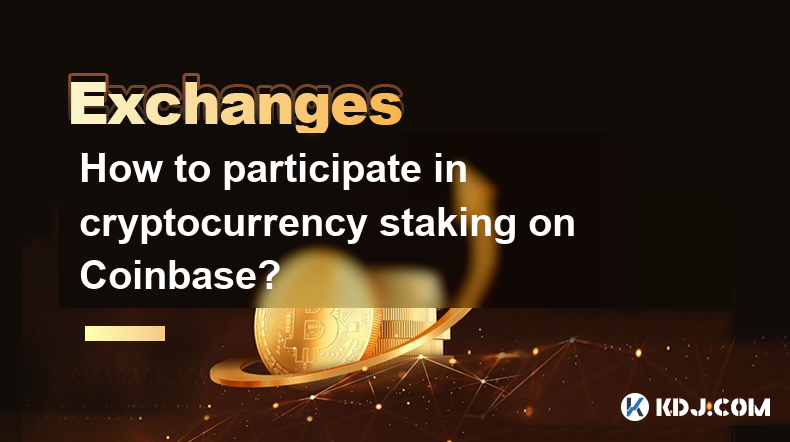
Key Points:
- Coinbase offers staking for various cryptocurrencies, but availability varies.
- Staking requirements differ per coin; check eligibility before participation.
- The process involves transferring your cryptocurrency to Coinbase's staking program.
- Rewards are paid out periodically, with rates fluctuating based on market conditions.
- Understanding the risks associated with staking, including smart contract vulnerabilities and market volatility, is crucial.
How to Participate in Cryptocurrency Staking on Coinbase?
Coinbase, a prominent cryptocurrency exchange, provides a platform for users to participate in cryptocurrency staking. This allows users to earn rewards by locking up their crypto assets and contributing to the security of a blockchain network. However, it's crucial to understand that not all cryptocurrencies supported by Coinbase are eligible for staking. The availability of staking options changes frequently, so always check the Coinbase website for the most up-to-date information.
Before you begin, make sure you have a Coinbase account. If you don't, create one by providing the necessary personal information and verifying your identity according to Coinbase's guidelines. Familiarize yourself with Coinbase's terms and conditions, including any fees associated with staking.
To initiate the staking process, you'll need to have the specific cryptocurrency you wish to stake in your Coinbase account. The amount required to stake varies depending on the cryptocurrency; some may have minimum thresholds. Check the Coinbase staking program for the specific cryptocurrency you are interested in to confirm the minimum requirements.
Once you have the necessary cryptocurrency in your account, navigate to the "Staking" section within the Coinbase platform. This section typically lists all the cryptocurrencies currently supported for staking, along with details on the expected rewards, minimum amounts required, and any associated risks.
After selecting the cryptocurrency you want to stake, carefully review the terms and conditions displayed. These terms will outline the expected annual percentage yield (APY), the lock-up period (if any), and the process for withdrawing your staked assets. Understand that APY can fluctuate based on network conditions and market demand.
Step-by-Step Guide (Illustrative, Specifics vary per coin):
- Locate the cryptocurrency you wish to stake within the Coinbase staking program.
- Click on the cryptocurrency to view the details and eligibility criteria.
- If eligible, select the amount you wish to stake, ensuring it meets the minimum requirements.
- Review and confirm the transaction. This will move your crypto from your regular Coinbase wallet to the Coinbase staking program.
- Once the transaction is confirmed, your crypto will begin accruing rewards. The frequency of reward payouts varies depending on the specific cryptocurrency.
The rewards earned through staking are typically paid out periodically, either daily, weekly, or monthly. The exact schedule is determined by the specific cryptocurrency and Coinbase's staking program. These rewards are generally credited directly to your Coinbase account. You can view your staking rewards in your Coinbase account's transaction history.
It is imperative to be aware of the risks involved in cryptocurrency staking. These risks include:
- Smart contract vulnerabilities: A bug in the smart contract governing the staking program could lead to the loss of your funds.
- Market volatility: The value of your staked cryptocurrency can fluctuate significantly, impacting the overall profitability of your staking activities.
- Network congestion: High network congestion can affect the rate at which rewards are generated.
- Changes in Coinbase's policies: Coinbase reserves the right to alter the terms and conditions of its staking program.
Remember to thoroughly research each cryptocurrency before engaging in staking. Consider the risk tolerance associated with your investment and only stake funds you can afford to lose. The information provided here is for educational purposes only and should not be considered financial advice.
Frequently Asked Questions:
Q: What cryptocurrencies does Coinbase support for staking?
A: Coinbase supports staking for a range of cryptocurrencies, but the selection varies and is updated frequently. Check the Coinbase website's staking section for the current list.
Q: How often are staking rewards paid out?
A: The frequency of reward payouts differs depending on the specific cryptocurrency and Coinbase's program. It can range from daily to monthly.
Q: Are there any fees associated with Coinbase staking?
A: Coinbase may charge fees associated with staking, although this varies depending on the coin. Always review the terms and conditions for each cryptocurrency before initiating the staking process.
Q: Can I unstake my cryptocurrency at any time?
A: The ability to unstake your cryptocurrency depends on the specific coin and Coinbase's program. Some may have lock-up periods, while others allow for more immediate unstaking, potentially with a waiting period. Check the terms before staking.
Q: What are the risks involved in cryptocurrency staking on Coinbase?
A: Risks include smart contract vulnerabilities, market volatility affecting the value of your staked crypto, network congestion impacting reward rates, and changes in Coinbase's policies. It's crucial to understand these risks before participation.
Q: Is staking on Coinbase safe?
A: Coinbase is a regulated exchange, but no platform is entirely risk-free. Risks associated with staking itself, such as smart contract vulnerabilities and market volatility, still apply. Coinbase's security measures aim to mitigate risks, but losses are still possible.
Q: How do I access my staking rewards?
A: Staking rewards are typically credited directly to your Coinbase account. You can view them in your account's transaction history. The method for accessing and withdrawing these rewards will depend on the specific cryptocurrency and Coinbase's program.
Disclaimer:info@kdj.com
The information provided is not trading advice. kdj.com does not assume any responsibility for any investments made based on the information provided in this article. Cryptocurrencies are highly volatile and it is highly recommended that you invest with caution after thorough research!
If you believe that the content used on this website infringes your copyright, please contact us immediately (info@kdj.com) and we will delete it promptly.
- Ethereum (ETH) Attempts a Comeback as Key Resistance Nears
- 2025-04-21 20:00:20
- Bitcoin Did Not Have the Explosive Start Many Expected
- 2025-04-21 20:00:20
- Bitcoin (BTC) Surges to New All-Time Highs as Gold Market Invests Flock to Safe-Haven Assets
- 2025-04-21 19:55:13
- AI Trading Agents Are Disrupting the Financial Services Industry
- 2025-04-21 19:55:13
- 4 Crypto Coins to Watch That Are Rewriting the Rules
- 2025-04-21 19:50:12
- President Donald Trump's threat to terminate Federal Reserve Chairman Jerome Powell
- 2025-04-21 19:50:12
Related knowledge
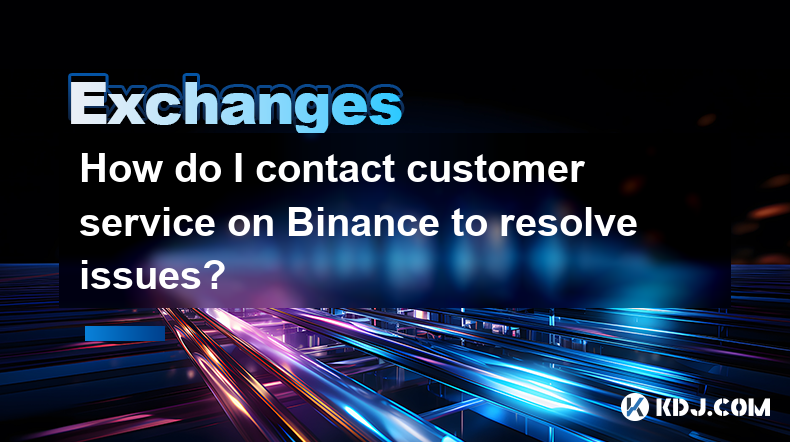
How do I contact customer service on Binance to resolve issues?
Mar 16,2025 at 04:30am
Key Points:Binance's customer service is primarily self-service, relying heavily on its help center and FAQs.Direct contact methods are limited, with email support being the most common route for non-urgent issues.Urgent issues may require using the in-app support system, though response times can vary.Understanding Binance's support structure and utili...
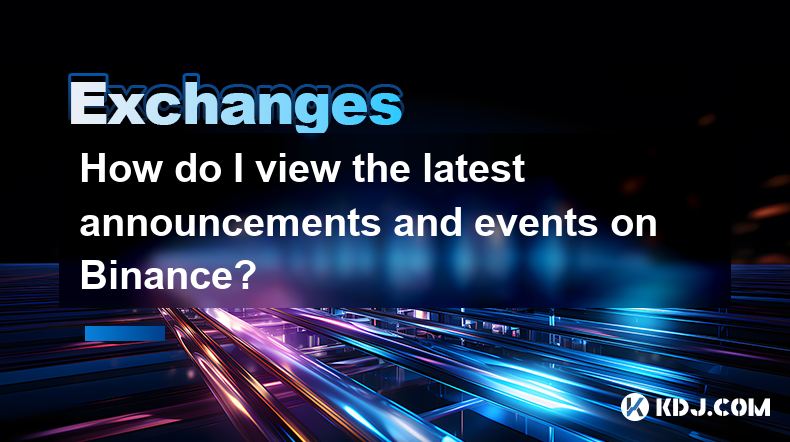
How do I view the latest announcements and events on Binance?
Mar 18,2025 at 10:18pm
Key Points:Binance utilizes multiple channels for disseminating announcements and events.The official Binance website is the primary source.Binance's social media platforms offer timely updates.Email subscriptions keep users informed about relevant announcements.Third-party aggregators can supplement official channels but require caution.How Do I View t...

How do I set up a subaccount on Binance?
Mar 14,2025 at 01:50pm
Key Points:Binance does not offer traditional "subaccounts" in the sense of separate accounts with independent logins under a master account.Instead, Binance offers features like user-defined labels for better portfolio management and API keys for automated trading. These provide functionality similar to subaccounts.Setting up these features involves na...
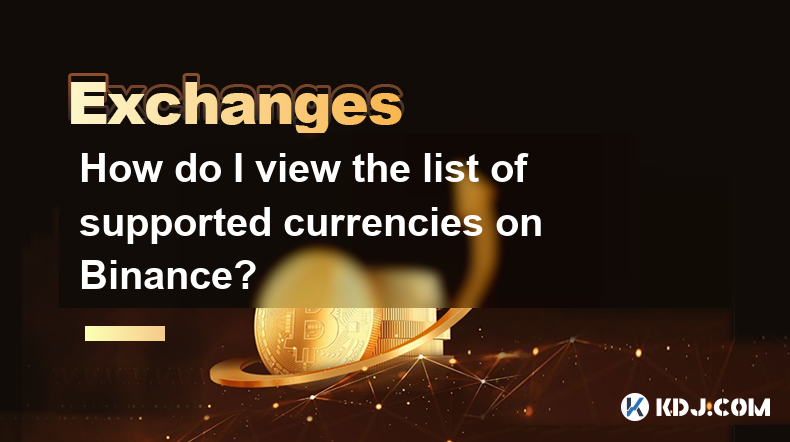
How do I view the list of supported currencies on Binance?
Mar 15,2025 at 05:35am
Key Points:Binance supports a vast and frequently updated list of cryptocurrencies. There's no single, static list.Finding supported currencies requires navigating Binance's website or app interfaces.Different sections of the exchange show different subsets of supported currencies (e.g., trading, staking, etc.).The availability of specific cryptocurrenc...
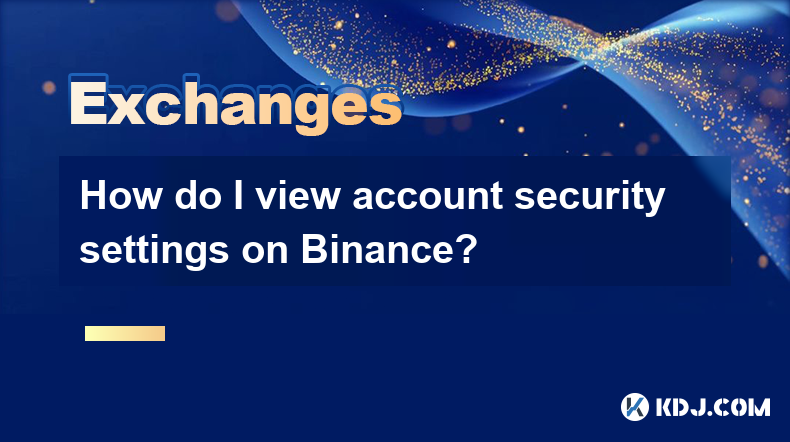
How do I view account security settings on Binance?
Mar 15,2025 at 08:40pm
Key Points:Binance's security settings are spread across multiple sections of your account. This article will guide you through each crucial area.Understanding and implementing these settings is paramount to protecting your cryptocurrency assets.We'll cover two-factor authentication (2FA), withdrawal whitelists, and other essential security features.Reg...
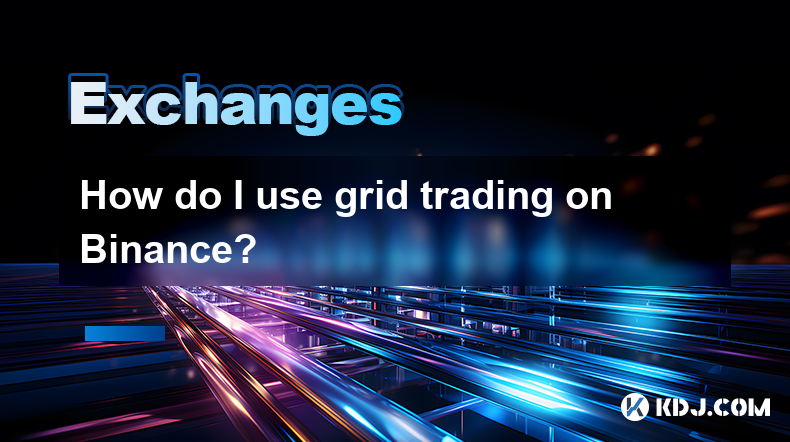
How do I use grid trading on Binance?
Mar 14,2025 at 04:25pm
Key Points:Grid trading on Binance involves automatically buying low and selling high within a defined price range.Binance offers a built-in grid trading bot, simplifying the process.Setting up a grid bot requires defining parameters like price range, grid quantity, and investment amount.Risk management is crucial, as losses are possible despite the aut...

How do I contact customer service on Binance to resolve issues?
Mar 16,2025 at 04:30am
Key Points:Binance's customer service is primarily self-service, relying heavily on its help center and FAQs.Direct contact methods are limited, with email support being the most common route for non-urgent issues.Urgent issues may require using the in-app support system, though response times can vary.Understanding Binance's support structure and utili...

How do I view the latest announcements and events on Binance?
Mar 18,2025 at 10:18pm
Key Points:Binance utilizes multiple channels for disseminating announcements and events.The official Binance website is the primary source.Binance's social media platforms offer timely updates.Email subscriptions keep users informed about relevant announcements.Third-party aggregators can supplement official channels but require caution.How Do I View t...

How do I set up a subaccount on Binance?
Mar 14,2025 at 01:50pm
Key Points:Binance does not offer traditional "subaccounts" in the sense of separate accounts with independent logins under a master account.Instead, Binance offers features like user-defined labels for better portfolio management and API keys for automated trading. These provide functionality similar to subaccounts.Setting up these features involves na...

How do I view the list of supported currencies on Binance?
Mar 15,2025 at 05:35am
Key Points:Binance supports a vast and frequently updated list of cryptocurrencies. There's no single, static list.Finding supported currencies requires navigating Binance's website or app interfaces.Different sections of the exchange show different subsets of supported currencies (e.g., trading, staking, etc.).The availability of specific cryptocurrenc...

How do I view account security settings on Binance?
Mar 15,2025 at 08:40pm
Key Points:Binance's security settings are spread across multiple sections of your account. This article will guide you through each crucial area.Understanding and implementing these settings is paramount to protecting your cryptocurrency assets.We'll cover two-factor authentication (2FA), withdrawal whitelists, and other essential security features.Reg...

How do I use grid trading on Binance?
Mar 14,2025 at 04:25pm
Key Points:Grid trading on Binance involves automatically buying low and selling high within a defined price range.Binance offers a built-in grid trading bot, simplifying the process.Setting up a grid bot requires defining parameters like price range, grid quantity, and investment amount.Risk management is crucial, as losses are possible despite the aut...
See all articles






















































































